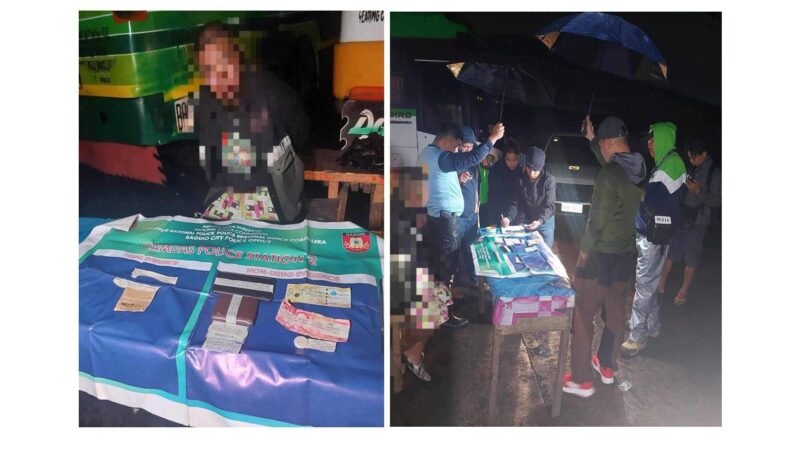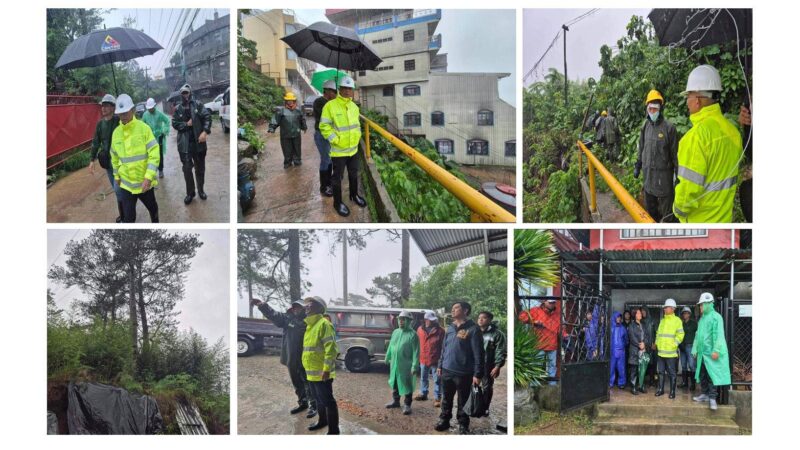Mayor vows to pursue demolition of illegal structures at Busol
March 24, 2021 – Mayor Benjamin Magalong on March 24 vowed to pursue the demolition of illegal structures at the Busol watershed to preserve the pinestand which is the biggest source of potable water and one of the few remaining forest reserves in the city.
“To finally put an end to this decades long problem, we shall continue to take action and remove illegal settlers within our watersheds for the benefit of the people,” the mayor said.
The mayor said the city had conducted a series of dialogues with the watershed occupants on the city’s demolition plan even before the pandemic happened.
He said they had an agreement with around 150 occupants and heads of the four barangays straddling the reservation for them to cooperate with the city by refraining from introducing improvements or expansion of their existing structures, helping guard against further intrusions and undertaking preservation measures for the watershed.
The mayor said a recent inspection of the site showed stark violation of the agreement as there were expansions undertaken and new structures that mushroomed to the detriment of the forest reserve and water resource of the city.
Because of these findings, demolition was scheduled after the affected parties were notified in January, according to the City Buildings and Architecture Office (CBAO).
The demolition targeted 16 structures and was set for March 23 and 24. Five structures were torn down and 11 were spared due to a temporary restraining order issued by the court.
It will be recalled that on Aug. 9, 2019, the mayor agreed to put on hold the demolition of eight on-going constructions at the watershed after securing the commitment of the informal settlers to guard the reservation from further intrusion.
The mayor then conducted a dialogue with the occupants where he stressed the city’s firm position to safeguard the remaining unoccupied portion of the watershed placed at only 60 percent of the entire Baguio side of the reservation it shares with La Trinidad, Benguet.
He then said that while the city gives humanitarian consideration to the predicament of the occupants, many of whom are ancestral land claimants who claimed to be long time settlers of the forest reserve, law and order must be respected.
But while the city is deciding on what action to take and while court cases remain pending, the mayor said the city can strike an agreement with the occupants toward the achievement of a common aim to preserve what is left of the watershed.
“If we don’t agree soon, we are sure to move in the direction of removing all of you from the watershed because our priority is to save the watershed from further intrusion and destruction,” the mayor issued this challenge then leading to the agreement.
The mayor also agreed to give them time to organize and present a plan of action for the guarding and preservation of the watershed and promised to explore ways to help them in their predicament.
Busol, the city’s biggest source of potable water, is embroiled in several court cases involving informal settlers and ancestral land claimants.
On February 4, 2009 the Supreme Court ruled with finality sustaining the city government’s bid to demolish some structures covered by Demolition Order No. 33 series of 2005 of former mayor Braulio Yaranon.
The High Tribunal sustained the city government’s contention that the city is governed by its charter and “thus, (lot occupants) cannot claim their alleged ancestral lands under the provisions of the Indigenous People’s Rights Act (IPRA).”
To date there are other cases pending before the various courts
The city is also poised to pursue the reversion procedures before the Office of the Solicitor General to reclaim the 7.8 hectare lot within the Busol watershed that was divided into 22 lots and illegally titled by unscrupulous individuals in 2015.
The subject lot is covered by a 211 title or part of those titles issued under Civil Reservation Case No. 1 Record 211 and which were declared void by the Supreme Court because the court that issued the same had no jurisdiction. The said titles can be legalized only upon undergoing validation proceedings. – Aileen P. Refuerzo







